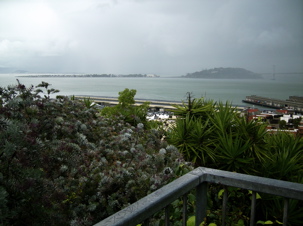Here’s another mention of Rev. John Murray Spear, the Universalist minister in New Bedford from 1837-1841, in the old Universalist Union, this time from the number for Saturday, April 17, 1841:
We have another letter from our friend “J. C.” of Lebanon. He makes war, without mercy, upon tea and coffee, though we are not prepared to say, without considerable justice. They are no doubt highly pernicious to many constitutions, and injurious to all, when used to excess, as in all other things. But it is very difficult obtaining pledges to a total abstinence from these indulgences. Let those afflicted, however, as Br. Clark has been, try his remedy. It is a simple and cheap prescription.
[J. C. writes:]
Br. Price — As you saw fit to publish what I wrote you in February last, and having received a letter from Br. J. M. Spear, of New Bedford, who, ascertaining that I have been afflicted with the nervous headache, has very kindly, and in the spirit of true brotherhood, proposed a remedy for that disease, with a request that I should try it, and if it proved salutary to me, let the readers of the Messenger know its character and effects, and thus induce others to come up to the cause of temperance, I am now induced to try my hand in writing you once more.
And, first, I wish to render thanks to our kind brother for the interest he has manifested in my temporal welfare, and assure him that I cordially reciprocate fellow feeling and good will toward him and his; and as he intimates I do not belong to “stand still Universalists,” you may assure him he is right. No, Br. Price, there is too much my hand finds to do in the moral reformation of the world, to allow me to fold my arms, and see the tide of sin and corruption roll rapidly along, and not use any effort to stay its desolating march. Intemperance in the use of ardent spirit, is not the only evil we have to encounter. There are other articles commonly used in our most respectable families, whose influence, though not so deadly hostile to morality and religion, are deleterious to the health and happiness of the rising generation. The use of tea and coffee as a common beverage is fast gaining ground, and if not retarded, will shorten the lives and usefulness of thousands.
Perhaps my readers begin to start, and call me a te-totaler. Well, I can’t help that; truth is truth, and should be told, “whether men will hear, or whether they will forbear.” And as those who have heretofore gone forward as pioneers, in whatever reformation has been brought about, either in science, politics, or religion, have been branded as empyrics, knaves, heretics, infidels, and so on; if I should meet the same fate I ought not to complain. No; nor should I by these means, be deterred from doing what my conscience tells me is duty, through fear of reproach.
Lest I weary the patience of the reader, with a long story about a short thing, I will go directly to my purpose, which is to tell what will cure the nervous headache. And this I wish to do in the language of Br. Spear, who says it has cured him, and given him perfect soundess. He says:
“It is a simple abstinence from narcotics. Among these I name tea and coffee. If you would be delivered from nervous headache, and all nervous diseases, abstain from these drinks entirely. If you love them, you must deny yourself, and ‘take up your cross.’ Try the experiment faithfully, and at the end of three months you will be delivered from this bondage of corruption into the glorious liberty of a clear head and sound mind. At first, the disease will seize you with greater power, and will hold on perhaps as long as the prophet was in the belly of the fish; but if you persevere, you will come off more than conqueror. You will ask what I drink?” and he answers, “warm water and milk, morning and evening, and cold water at noon.”
Now Br. Price, what is above recommended, is just the course I have adopted, and is, I think, the reason why I am able to write this (as some may term it foolish) essay. It is now about three months since I commenced, and I fondly hope to be able to read, not only the “Messenger,” but much other good matter, that is published at the present time, and above all, the Bible, our only chart to the haven of eternal life.
Others in this vicinity have tried the remedy with success, and I earnestly recommend others, troubled with nervous difficulties, to “go and do likewise.” — Don’t be afraid of being thought ultra abstemious, but come up to the good work of reformation. Don’t be afraid of appearing singular. It was once thought not genteel to do without ardent sprrits. Now, he who should think to treat a company of ladies and gentlemen with the “good crittur,” would bethought hardly civil. Up! up! ye nervous, lame-sided, weak-stomached! — ye who have feeble limbs, distressed backs, weak and painful heads, disorganized systems, and all ye feeble train! up to the rescue! Why will ye die?
J. C.
Lebanon, Conn., March, 1841.


